Caribbean Women in Science Award - Sunshine De Caires sheds light on soil
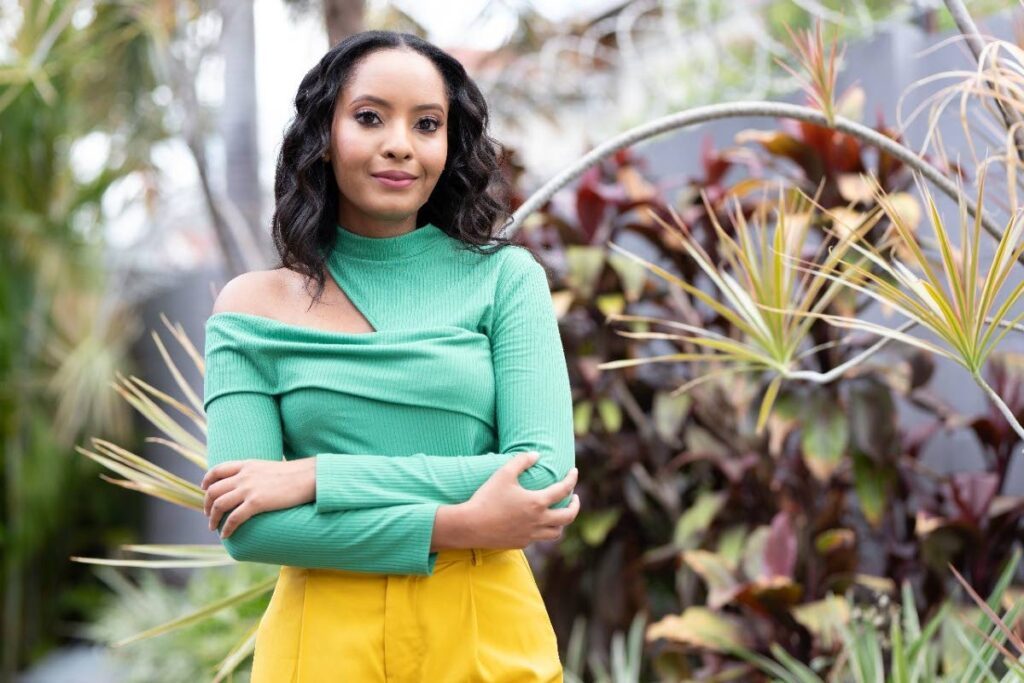
TO the average person, a patch of soil is just a bunch of dirt. But for soil scientist Dr Sunshine De Caires, there is a whole world happening just under our feet.
De Caires, whose PhD is from the UWI, was one of two inaugural recipients of the L’Oréal-Unesco Caribbean Women in Science Award.
The award ceremony was held last November at the UWI, St Augustine campus during the 23rd Biennial Conference and General Meeting 2023 of the Caribbean Academy of Science. She was honoured for her work on understanding the effects of climate change on soil quality and sustainable land management. The other winner was Dr Sarah Buckland, whose research at UWI, Mona, Jamaica, focused on microclimatic comparisons and their impact on agriculture.
Last month, De Caires participated in a Unesco Campus roundtable discussion on Fostering Girls’ Interest in Science through Innovative Education in the Digital Age at the Unesco headquarters in Paris.
Newsday spoke with De Caires about the trip, her educational journey, and the award during an interview last week.
She explained the round table on February 9 was part of Unesco's Closing the Gap in Science event, and in commemoration of International Day of Women and Girls in Science. The Unesco team decided to include one of the two winners of the Caribbean Women in Science Award and De Caires was chosen.
She described participating in the round table as "fun."
"I liked answering questions from the students and girls. They reminded me of myself."
She said one of the student questions she liked the most was how to be more confident.
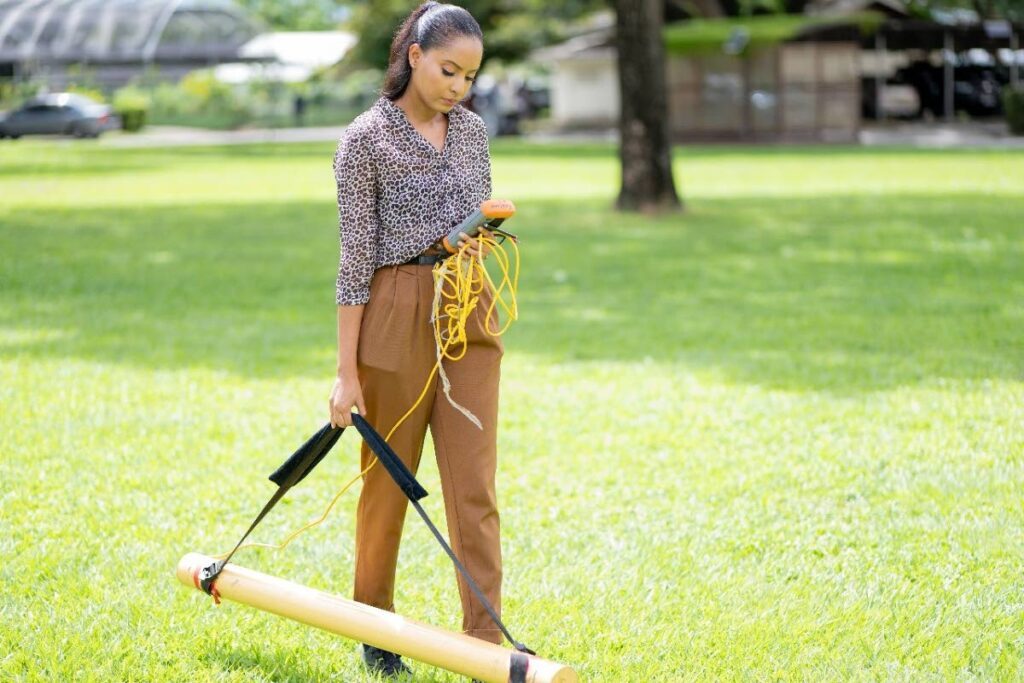
"I was like, 'I am not confident. You just have to be yourself and you just have to talk about what you know. And the more you (are) yourself and the more you're comfortable (with) talking about your work...then your confidence will grow.'"
Asked if she felt a duty or a drive to inspire girls to go into the sciences, De Caires replied she would like people to follow their passion, whether it is science or anything else.
"I would like to inspire people who are on the fence about science because they have misconceptions about its difficulty or whether or not they're capable of it. So those are the people I would want to inspire.
"But I don't want to go out and tell everyone that (they) should do science. You should do what makes you happy and what you have the aptitude for."
She said if she did not have the aptitude, she would not have been involved in her field.
"But I think a lot of girls probably have misconceptions...
"I do have to go to remote areas and have to be physical. You have to be fit enough to walk long distances and do some manual labour. And if you're that type of woman, then you can get into environmental science. Because it's not a 'sit-behind-a-computer' kind of science job.
"But it's rewarding. You get to explore the country. You get to experience nature at its purest."
De Caires recalled while growing up in Ste Madeleine she was always very curious.
"I was the child who would ask a lot of questions."
Later in life, she would recognise her inquisitive nature was a feature of a scientific mind.
She went to primary school at Ste Madeleine Government, then transferred to Grant Memorial Presbyterian for a year to Common Entrance. She passed for San Fernando Government Secondary (Mod Sec) and attended it up to form six. She wanted to be a doctor, but found A-Levels "hard as hell," and did not do her best.
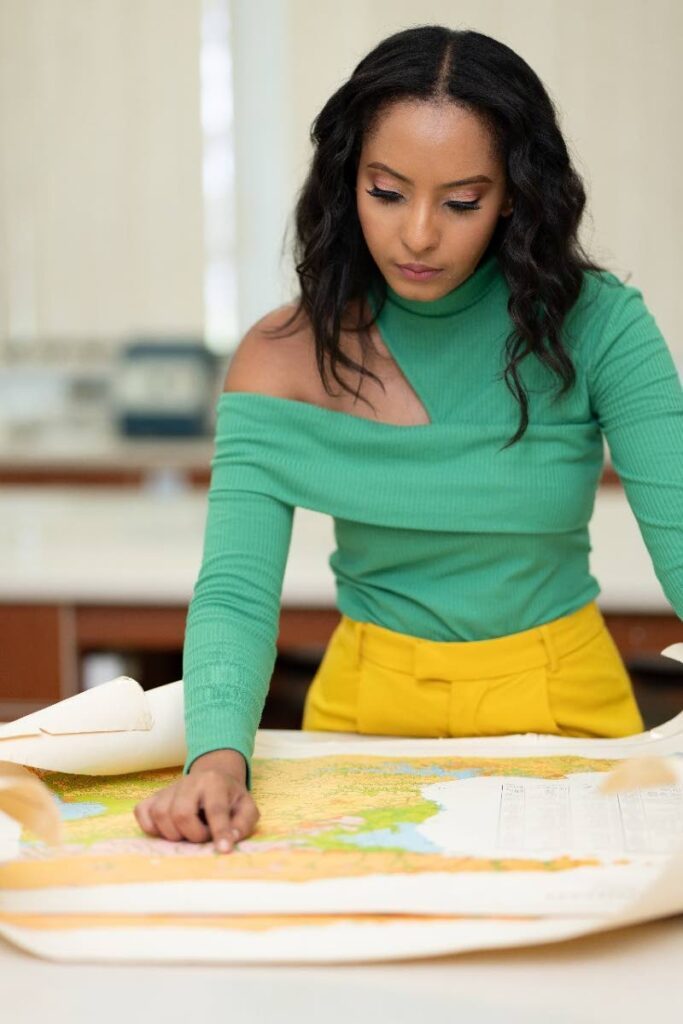
She enrolled at UWI, St Augustine, and did a double major in chemistry and geography. Her initial plan was to transfer to the Faculty of Medical Sciences after a year, but her plan hit an obstacle.
"For my undergrad, I had a very hard time transitioning to being alone and not being under your parents' tutelage. I kind of dropped the ball."
She recalled at one point her parents commented she was losing too much weight and advised she should not study any more.
"It took me until mid-second year to fully grasp how to study for UWI and how to be successful at exams. I started to feel like myself again. I started to do well in school."
During her final semester, there was an advertisement for research students to do an MPhil (master of philosophy, a postgraduate degree) in soil science. De Caires signed up and was successful.
Her MPhil project was supposed to look at cadmium in soil (the chemical element is a silvery white metal and a cancer-causing agent) and use geophysical tools to predict how it varies in soils.
"Cadmium in cocoa soils is actually a huge issue, but...there are no regulations about the amount of cadmium you can have in cocoa beans in order to export it."
De Caires recalled owing to a lack of communication between departments it was discovered there were chemistry students doing similar work. So she had to figure out something else to do in her third year.
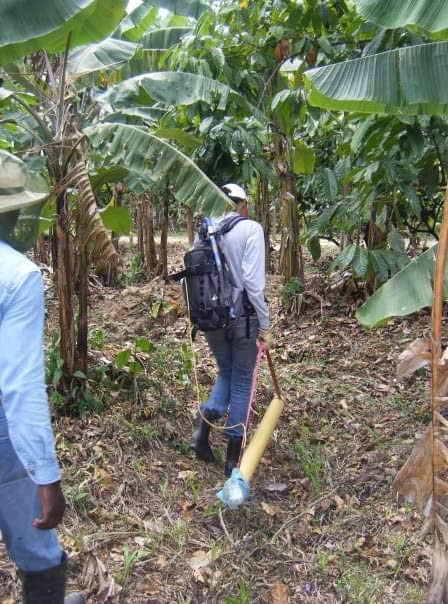
She then signed up to do her PhD and was supposed to do a precision agriculture project, but after two years the project did not come to fruition, and she had to change course again.
"I've had a lot of setbacks on my journey, but I'm not mad at it. I think it taught me resilience and how to troubleshoot and how to pivot."
She said over the years she got better at research, being resilient and persevering.
Her PhD was in tropical earth and environmental science.
Asked about not pursuing her plan to do medicine, she replied that she strongly believes in the universe guiding people, "Because I think I have been guided throughout my entire journey."
She recalled many of her friends had applied for the MPhil and had better grades than she did, but: "For some reason, I was the one selected to do it. When that happened, I was like, 'Okay, I'm on the correct path.' So I continued along this journey into soil science and it led me here to winning the L’Oréal award."
The award
The L’Oréal-Unesco Caribbean Women in Science Award, specifically the Young Talents Caribbean Region Programme, is a collaboration between L’Oréal Caribe, the Unesco Office for the Caribbean, and the Caribbean Academy of Sciences, and focuses on addressing the challenges of Caribbean development, scientific research, and female empowerment. It recognises and honours young female scientists with an endowment to support their scientific work.
De Caires recalled a UWI administrative assistant sent out a memo in April last year encouraging qualified students to apply. So she did and around October she was notified that she had won, after competing with women across the Caribbean in different areas of expertise. She said within her faculty she is well published, but did not know how she stacked up against the other applicants.
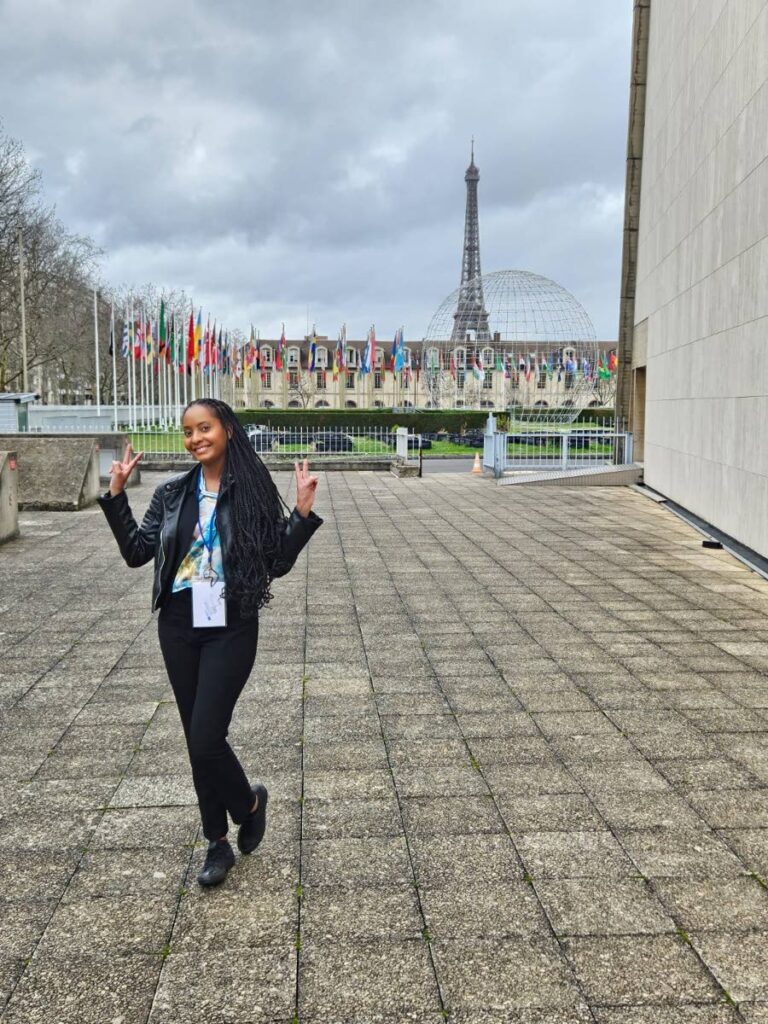
Asked about her reaction when she won the award, De Caires said she was not an overly expressive person or excitable. She added she felt validated that her research was valuable and other scientists from the region appreciated it.
She expressed thanks to her supervisors, Profs Mark Wuddivira and Duraisamy Saravanakumar, her parents, family and fiancé: "The people who generally kept me sane. It's not easy having to overcome obstacles."
The winning project
De Caires said she found it interesting that her research and the research by fellow winner Buckland were similar and they were both from the environmental realm, rather than chemistry, medical sciences or physics.
Asked about her project, she said while many people think of soil as "dirt," it is "our lifeblood." She explained that without healthy soil crops cannot be grown,ecosystems would die and there would not be oxygen to breathe.
"Soil mediates a lot of processes – physical, chemical as well as biological processes."
Her project uses an electromagnetic device to induce a magnetic field in the soil which generates an electrical current that interacts with the soil's properties and returns a signal to the instrument.
"And that signal is interpreted as the apparent electrical soil conductivity."
The measure relates to the physical, chemical and biological components of the soil and then physical samples are collected to confirm the data. The process collects readings at one-second intervals, which produces an "intensive spatial data set," and can be used to generate a sampling plan.
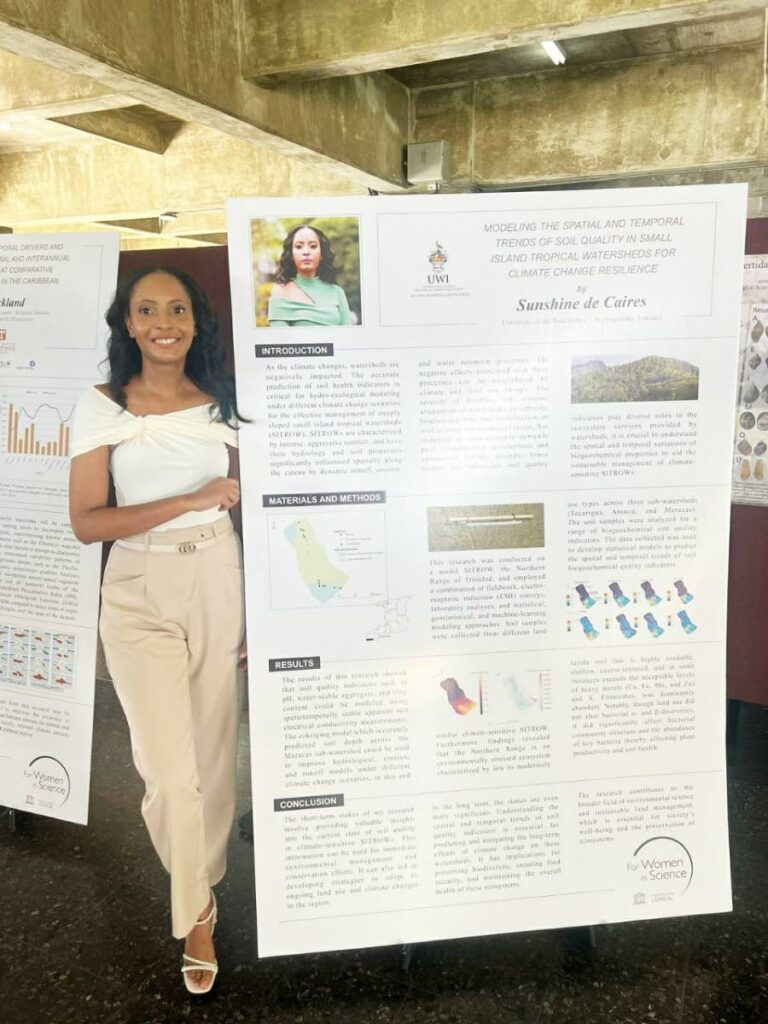
As for the practical use of this process, De Caires explained soil sampling is a very labour- and time-intensive activity and analysis is very expensive. Her process takes measurements one second apart, as opposed to the traditional metres apart. The process can reduce the cost of soil sampling and create a soil depth model which can be used to predict accurately how soil depth changes across a watershed as land use changes.
Her work was done at a site in Maracas, St Joseph, but the process could be extended to the entire Northern Range.
"With climate change, and Trinidad being so humid, we are going to experience increases in intense weather events along steep slopes and shallow soils. If there is no vegetative cover, you can expect erosion to happen, landslips and landslides, and you would also expect an increase in flooding."
To do flood modelling, an important parameter is soil depth. De Caires added the process can be applied to the agricultural industry, and pointed out her MPhil was in delineating management zones in cocoa fields. With her award-winning process, different soils in the fields can be accurately managed.
Asked about her plans, De Caires said she is looking for post-doctorate opportunities.
"I am taking everything one day at a time. I think that my career so far has been guided and I hope that it continues, and my next opportunity opens itself."
She said ultimately, she would like to return to the Faculty of Food and Agriculture and give back to the younger generation coming up, but would like to have some international experience before taking up such a position.

Comments
"Caribbean Women in Science Award – Sunshine De Caires sheds light on soil"